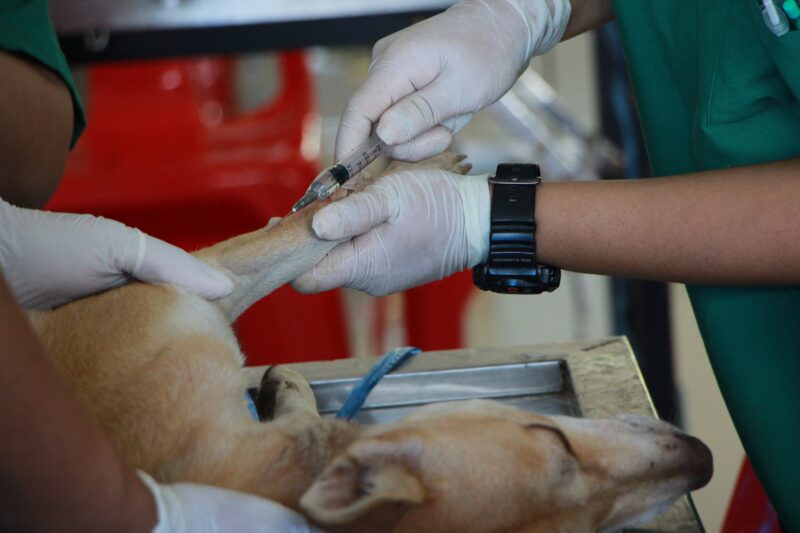Heartworm disease in dogs poses a silent yet potentially lethal threat that often goes unnoticed until it reaches an advanced stage. As responsible pet owners, it is crucial to understand the nuances of heartworm disease, from recognizing the subtle symptoms to implementing effective prevention and treatment strategies. In this comprehensive guide, we will delve into the ins and outs of heartworm disease in dogs, shedding light on its causes, symptoms, treatment options, preventive measures, and how to provide optimal care for our beloved canine companions.
Understanding Heartworm Disease
Causes and Transmission
Heartworm disease is caused by a parasitic worm called Dirofilaria immitis, commonly known as heartworm. This worm primarily affects dogs but can also impact other animals, such as cats, ferrets, and even humans in rare cases. The transmission of heartworms occurs through the bite of an infected mosquito. When a mosquito carrying heartworm larvae bites a dog, the larvae are transmitted into the bloodstream, eventually reaching the heart and lungs, where they mature into adult worms.
The Silent Threat
One of the challenges of heartworm disease is its silent progression. In the early stages, dogs may show no visible symptoms, leading to a delayed diagnosis. As the disease advances, symptoms may include coughing, lethargy, difficulty breathing, and weight loss. In severe cases, heartworm disease can lead to heart failure and, ultimately, death.
Recognizing Symptoms
Early Signs
Early detection of heartworm disease is crucial for effective intervention. While the early stages may exhibit no noticeable symptoms, subtle signs may include occasional coughing, reluctance to exercise, and mild lethargy. Pet owners should remain vigilant, especially in regions where mosquitoes are prevalent, as these areas pose a higher risk of heartworm transmission.
Advanced Symptoms
As heartworm disease progresses, more severe symptoms may manifest. These can include persistent coughing, difficulty breathing, fatigue, decreased appetite, and weight loss. In some cases, dogs may develop a swollen abdomen due to fluid accumulation, indicating advanced heart failure.
Treatment Options
Diagnosing Heartworm Disease
If a dog exhibits symptoms or is at risk due to exposure to mosquitoes, a veterinarian may recommend heartworm testing. The most common diagnostic test is a blood test that detects the presence of heartworm antigens. In some cases, additional tests such as chest X-rays and echocardiography may be conducted to assess the severity of the infection and its impact on the heart and lungs.
Immiticide Treatment
The primary drug used to treat heartworm disease in dogs is melarsomine, marketed under the brand name Immiticide. This medication is administered through a series of injections into the dog’s lumbar muscles. The treatment process may involve multiple injections spaced over several weeks, and it requires strict rest and activity restriction during the recovery period.
Supportive Care
In addition to Immiticide treatment, dogs with heartworm disease may require supportive care to manage symptoms and aid recovery. This can include medications to address coughing, inflammation, and potential secondary infections. Nutritional support and a calm, stress-free environment are essential components of the recovery process.
Prevention Strategies
Monthly Heartworm Preventatives
Prevention is undeniably the most effective approach to combat heartworm disease. Monthly heartworm preventatives, available in various forms such as chewable tablets, topical treatments, and injections, work by eliminating the immature larvae before they mature into adult worms. These preventatives are safe, easy to administer, and should be given year-round, even in regions with seasonal mosquito activity.
Annual Heartworm Testing
Regular heartworm testing, typically conducted annually, ensures early detection and timely intervention. Even dogs on preventive medications should undergo regular testing to confirm their negative status and assess the effectiveness of the preventive measures.
Mosquito Control
Reducing exposure to mosquitoes is an integral part of heartworm prevention. Implementing measures such as using mosquito repellents, avoiding outdoor activities during peak mosquito times, and utilizing mosquito nets or screens can help minimize the risk of transmission.

Caring for Dogs with Heartworm Disease
Post-Treatment Care
After undergoing heartworm treatment, dogs require a period of strict rest to allow the body to absorb and eliminate the dead worms. Vigorous exercise should be avoided during this time to prevent complications. Regular veterinary check-ups are essential to monitor recovery progress and address any lingering symptoms.
Continued Preventive Measures
Dogs that have undergone heartworm treatment remain susceptible to re-infection. As such, it is crucial to resume and maintain a strict heartworm prevention regimen. Veterinarians may recommend a modified schedule for preventive medications based on the individual dog’s health and circumstances.
Regular Veterinary Check-ups
Regardless of a dog’s heartworm status, regular veterinary check-ups are paramount for overall health. Routine examinations allow veterinarians to monitor for any signs of heartworm disease, assess the effectiveness of preventive measures, and address other health concerns promptly.
Conclusion
Heartworm disease is a silent yet formidable threat to our canine companions. Recognizing the signs and symptoms, implementing preventive measures, and seeking prompt veterinary care are crucial steps in ensuring the well-being of our dogs. With a comprehensive approach that includes regular testing, year-round preventive medications, mosquito control, and attentive post-treatment care, we can protect our beloved pets from the devastating impact of heartworm disease. As responsible pet owners, our commitment to understanding, preventing, and treating heartworm disease is key to providing our dogs with the healthy and happy lives they deserve.













